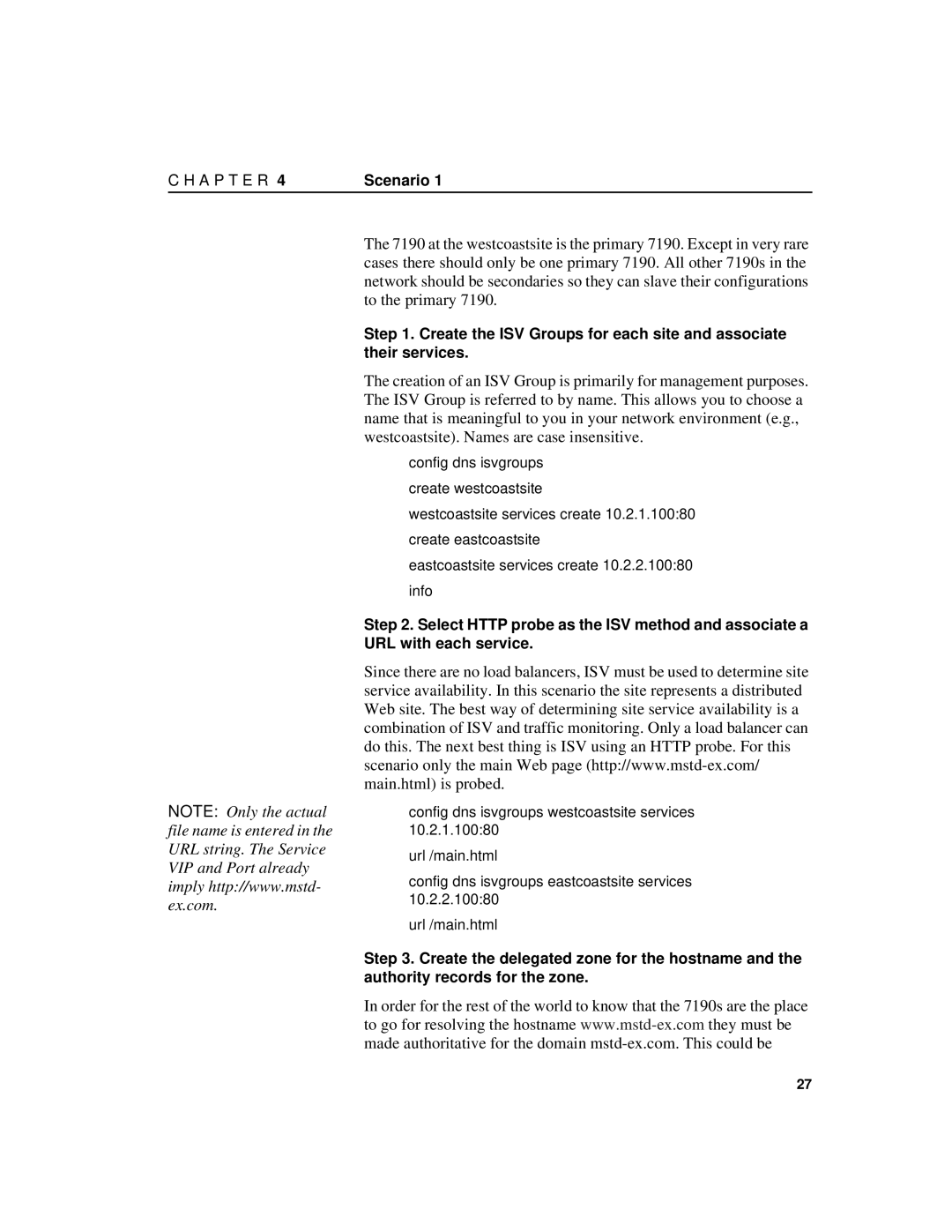C H A P T E R 4 | Scenario 1 |
NOTE: Only the actual file name is entered in the URL string. The Service VIP and Port already imply http://www.mstd- ex.com.
The 7190 at the westcoastsite is the primary 7190. Except in very rare cases there should only be one primary 7190. All other 7190s in the network should be secondaries so they can slave their configurations to the primary 7190.
Step 1. Create the ISV Groups for each site and associate their services.
The creation of an ISV Group is primarily for management purposes. The ISV Group is referred to by name. This allows you to choose a name that is meaningful to you in your network environment (e.g., westcoastsite). Names are case insensitive.
config dns isvgroups
create westcoastsite
westcoastsite services create 10.2.1.100:80
create eastcoastsite
eastcoastsite services create 10.2.2.100:80
info
Step 2. Select HTTP probe as the ISV method and associate a URL with each service.
Since there are no load balancers, ISV must be used to determine site service availability. In this scenario the site represents a distributed Web site. The best way of determining site service availability is a combination of ISV and traffic monitoring. Only a load balancer can do this. The next best thing is ISV using an HTTP probe. For this scenario only the main Web page
config dns isvgroups westcoastsite services 10.2.1.100:80
url /main.html
config dns isvgroups eastcoastsite services 10.2.2.100:80
url /main.html
Step 3. Create the delegated zone for the hostname and the authority records for the zone.
In order for the rest of the world to know that the 7190s are the place to go for resolving the hostname
27
